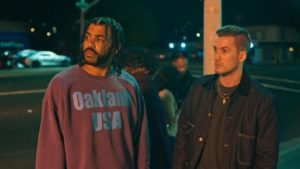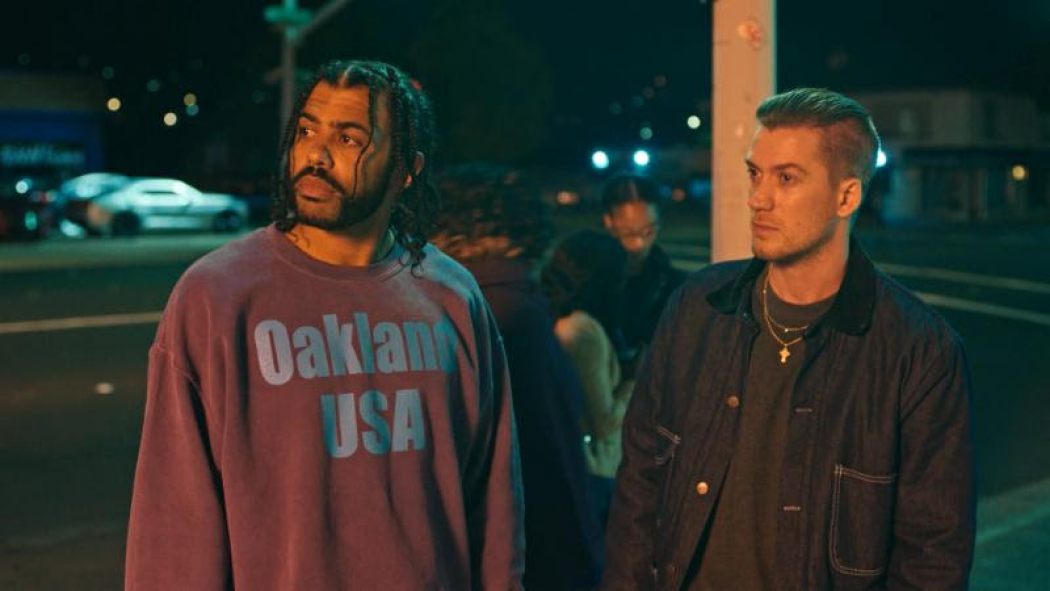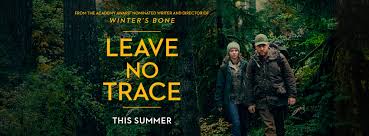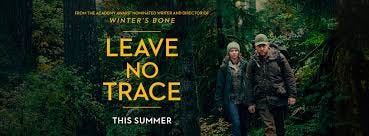Daveed Diggs and Rafael Casel on “Blindspotting”
Posted on July 18, 2018 at 8:00 am
Sometimes it takes forever to get a movie made and then it arrives at exactly the right moment. Longtime best friends Daveed Diggs (“black-ish,” “Wonder,” Tony-winner for “Hamilton”) and spoken word poet/academic Rafael Casal began working on their extraordinary film, “Blindspotting,” inspired by their experience growing up in the uneasily gentrifying Oakland, California area long before either became successful. It took about ten years before they got the financing, and when it premiered at Sundance it was immediately acclaimed as a remarkably assured first film with exceptional performances a gripping story, and a nuanced, sometimes poetic portrayal of issues of race, class, and friendship.

Diggs plays Collin, three days from completing his parole and under enormous pressure to make it through without any infractions that would send him back to prison. He sees a policeman kill an unarmed black man and says nothing because he does not want to jeopardize his parole. Casal plays his best friend Miles, a loving father and husband but also a volatile man quick to fight who may lead Collin into danger.
In an interview, Diggs and Casal talked about their on- and off-screen friendship and why it was important that the movie — like life — combine comedy, drama, family issues, and poetry.
In the film, your characters play movers who come into contact with a wide range of customers, including a photographer who shows them photos about the oak trees that can no longer be found in the city named for them, and he asks the two of you to stare into each other’s eyes. Tell me what inspired that and what you were thinking about in that scene.
RC: The exercise was stolen from one of my mentors, Chris Walker, who made us do it when I was teaching at the University of Wisconsin in Madison. He would have the students do that and then there were all these mimicking games and stuff. It was about getting the giggles out and establishing intimacy between two actors or two performers. That’s also just a very hippie thing to ask someone to do something you really love. I think the Bay Area is so hippie in that way and the idea of making two grown men try to connect in an intimate way was a way to display how uncomfortable that is for two guys who have known each other their whole lives. It just felt like a fun thing to do early in the script. Performing it — we have a different level of comfort than Miles and Collin do so that was easy for us. There were a few moments during the photoshoot for the film where they had us so close together it was so funny. For the photo we were within an inch away and I go, “This is alright but normally only a girl or my dog could get that close to my face.”
DD: There were all sorts of different versions of who the character was but they were all a particular Bay Area energy that we didn’t have represented other places in the film, somebody who despite being forced to interact with capitalism in the way that we all have to would much prefer to peddle understanding as opposed to paintings. He would rather give all of his pictures away and just be able to promote these moments of true honest understanding with each other. So he sees an opportunity here and one of the things he gets to bring out is that we get to see how difficult intimacy even on the basic level is for two male friends despite being friends their whole lives. There is something awkward about just being this close together and actually looking each other in the eye. Most of the time you don’t look at the person you are talking to. But that is where all of the cues for how somebody is feeling are.
Why is it that your characters can live in a community of interracial relationships that seem completely accepted but as the movie shows, the world around them is still having trouble dealing with racial differences?
RC: I don’t know that no one notices the differences. I think we’re presenting a reality where those conversations have been had already. That melting pot does not happen without a ton of talks about it. That’s why I think a lot of the conversations that do happen on screen happened a few steps into the conversation. We assume that any place that has gotten to a point where these are the kinds of relationships that are around didn’t skip forward and get to something like racial harmony. The world is not there, but they’ve had those conversations or some degree of those conversations with each other. It’s not like Miles and Ashley have never talked about the fact that she’s black and he’s not; they’ve definitely had that conversation.
DD: I’m mixed, a ton of my friends were mixed. By virtue of being mixed I’ve almost never dated somebody who was of the same race as me in a relationship, so growing up that wasn’t a thing. That was normalized to a degree that nobody batted an eye about it and so I didn’t know until I left that that it would be a thing anywhere else and I didn’t understand it. I didn’t understand any of the hang-ups with it. I felt like we were having a discussion that I was born already having had and it was pressuring in me in a certain sense but I think the fact that communities exist under the fact that people are able to interact in a lot of ways within a community has really nothing to do with what’s happening in the country on a grand scale.
One of the themes of the film is the struggle with gentrification of the neighborhoods.
DD: I think it’s natural to be fearful of somebody literally taking your resources and removing you from them. That is what’s happening to a lot of the folks in that community it’s what’s happening to Miles and Colin. The green juice isn’t the problem; the fact that it is reasonable for the green juice to be priced at $10 leads you to beg the question of who is that for and why did it never exist before we started seeing these new people coming in. It’s not like nobody in this neighborhood has been health-conscious before. Val loves going to SoulCycle and she’s so excited that that is part of this community now. She uses it all the time but it didn’t exist until very recently and the thing that comes along with its existence are raised rents and a difference in policing. Police are being called to events that they would not normally be called to. That recent story about “barbecuing while black” is this beautiful example of where here is something that’s been happening in the same place for over a decade every weekend and because the neighborhood changed, somebody called the police on it, on a bunch of black people just having a barbecue.
I know you’ve been working on the film for 10 years and yet it seems like it just seems like it has come out at exactly the right moment. How did it evolve to reflect some of the Black Lives Matter events and the crucial plot element about “the talk” that black parents have with their children?
RC: Yeah the evolution that we bring up a lot is just the nature of the conversation around how communities are prioritizing issues and it’s just changed. It was shocking 10 years ago when we would hear about a police officer murdering somebody now it’s here and gone so fast. The list is just so long of names of young men and women of color who are being murdered by police officers. So the movie had to change. The movie had to become about that, about the fact that it’s not a headline anymore, that Collin is the only one who seems to care when he sees a black man being killed by a policeman. Even his best friend knows about it and doesn’t ask about it again after the first day. He sees it on the news and processes it and goes, “but we know what this is; this will not be the one that moves the needle so let’s move on from it”.
What makes Collin and Mile friends? They seem very different, more like family held together by ties unrelated to what they have in common.
DD: Oh I think they have the entirety of their lives in common. They essentially grew up with each other.
RC: The way that they joke; the way that they see the world, their shorthand of references.
DD: And they also need each other for different things. I think Collin doesn’t activate nearly as much without Miles around and sometimes over the course of the film that becomes a problem. But also think about how many times it was probably a good thing. How many jobs did Collin get because of Miles and how many other opportunities did he have?
RC: How many times did they bail each other out of dangerous and violent situations because there are two instead of one? Their whole relationship is based on massive loyalty and understanding and family; Colin is like a second surrogate father to Miles’ son. There is so much shorthand support and it’s a poor neighborhood, so survival is the key; loyalty is key. That’s why you have guys who grew up together and they’ve known each other their whole lives. Sure they’re totally different in the group but they are a group. You are only aware of their differences if you’re in the crew. But if somebody throws a bottle at them you will see how they all respond the same. It’s like a sports team — watch how quick they fall in line.
One of the things I loved about the film was the range of tone. You’ve got just outright funny stuff, you got very heightened stuff, you’ve got very realistic drama. Did anybody push back on you and say “hey pick a lane?”
DD: We heard that early on a little bit, but I think philosophically for us we wanted to portray the Bay area honestly. It had to be in the DNA of the film so it wasn’t just swinging wildly it was actually intentional. This is how we all laugh one second and cry the next and I think that is not Bay Area specific. I’ve never felt one thing at a time. Nobody has. We are often pushed in art to focus on one thing, to mine all of the available material out of one lane. For us to try in order to be true to life as we could which was the premise of us making this film I couldn’t find a way to do that.
RC: That tonal specificity is a fear-based constraint of studios, not a capacity of the audience. Our job is to push the medium. We don’t just want to make a film within a medium; we want to move the medium. The excitement was to go, “Well, the great news is we didn’t go to film school. We don’t know any of those rules. All we know is honesty.”
What is it about hip-hop that makes it so vital a part of today’s expression?
RC: Heightened language is just the mechanism that tells you how important information is. It is an attractive thing to listen to that functions the same way that musical theater does. When a feeling or idea crosses over to be too emotional to just talk about it, something elevates, so you sing. You could put it in the hip-hop bucket but that’s just songs and poetry and it predates all of that. There is a cadence to the way in which we use hip hop, as well as the concept of disenfranchised communities using verse to shout from the mountaintop when they’re not being listened to otherwise. But the idea of verse as a way to elevate language has been in the arts since the arts began. So I think we both were allied on the very contemporary mechanism that has its roots in something that has a very feeling mechanism which was creating dense and beautiful language to tell you what’s important about the moment.



